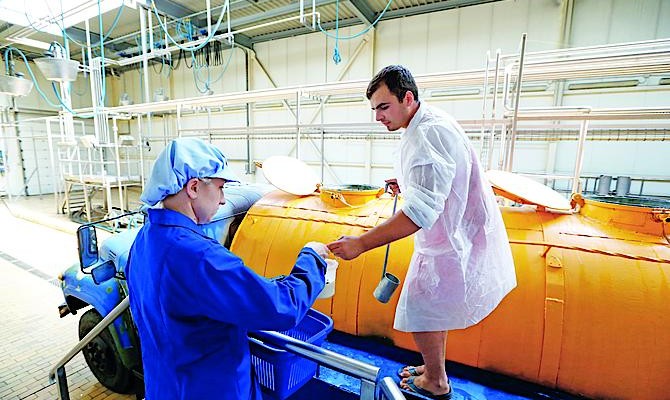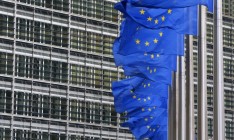Economy
government policyThe Cabinet of Ministers estimated budget losses at UAH 4.7 bn during the first year upon signature of the Association Agreement with the EU

A day prior to signing the economic part of the Association Agreement (AA) with the EU the Cabinet reviewed documents concerning the economic repercussions of this step. During the first year of effect of the AA the government budget will fall UAH 3.88 bn short of proceeds from import duties and UAH 0.78 bn short of proceeds from the value added tax on imported goods, according to calculations of the Ministry of Finance. “If to assume that imports of EU countries grow at the same rate as in the case with introduction of the free trade zone with countries of the European Free Trade Association, when the volume of imported goods increased 9.3% over the first year, the aforementioned shortfalls will be compensated by an increase in proceeds from taxation of additionally imported goods (UAH 4.41 bn),” claims the Cabinet in its information materials. “As for the total amount of the government budget revenues for this year, the UAH 4.7 bn would be around 1.3%, which can be covered by additional proceeds from the VAT and the profit tax from increased export volumes,” says Oleksandr Zholud, expert at the International Centre for Policy Studies. At that, he does not rule out the possibility that the changes can be introduced to the government budget 2014 after all, but they will be due to the military conflict in the eastern regions of Ukraine.
Nonetheless, experts doubt that the growth rates of more than 9% can be achieved after signing of the AA. According to the calculations of analysts at the R&D Economic Institute of the Ministry of Economic Development, an additional increase of the total volumes of export during the first year of the FTZ will be around 0.7% (around UAH 7 bn), “since the level of barrier protection of Ukraine is no longer a barrier to the import of goods from the EU”. The import of financial intermediary services is expected to increase most by 2.66% as well as chemical products (2.5%), forestry (2.11%) and the food industry and agriculture (1.6%). At the same time, exports are expected to increase by 2% or UAH 16.8 bn with key industries to contribute to that. They are agriculture (11%) and the food industry (8.57%).
Mykola Azarov’s government also had its calculations of the influence of the AA on the government budget. Their figures, in fact, correspond to the figures of the current government. According to those calculations, the shortfalls of the government budget during the first year of the effect of the AA could amount to UAH 4.6 bn from import duties and during the second year – UAH 6 bn. Among the compensators were additional proceeds from the VAT (UAH 1.43 bn in the first year and UAH 2.17 bn in the second year) and the profit tax – UAH 0.92 bn and UAH 1.18 bn, respectively.
Despite that the premier announced in public that Kyiv was ready to sign the agreement, there is no such confidence in the Cabinet of Ministers. “Today, at the closed part of the meeting the premier instructed the ministers to complete all tenders for hiring personnel responsible for European integration as soon as possible, saying that the European Integration Department must be set up in the Cabinet as well as the position of vice premier responsible for European integration must be created. Today, there is no infrastructure for the introduction of European standards,” First Deputy Chair of the VR Budget Committee Oksana Kaletnyk told Capital.
In their turn, representatives of business who attended the meeting tried to communicate to the premier their concern over trade quotas and the fact that in the sectors where Ukrainian goods could have competed with the European goods, they were too understated, she said.
As a reminder, preparations for the signing of the AA began in 2007, when the EU Council issued a mandate to the European Commission for conducting talks with Ukraine on the “new agreement”, which later was named the “association agreement”. The delegation and directives were approved by the presidential decrees No. 76 of February 5, 2007 and No. 804 of August 2010. In the following years, technical drafting of the agreement and consultations took place. Signing of the AA was planned for November 28-29, but the Azarov government suspended the process of country’s preparation for signing on November 21 due to need for additional consultations between the EU and Russia.
In fact, Russia repeatedly pointed to the risks it would face if Kyiv signed the AA. In particular, the statements of the Russian government mainly applied to large volumes of grey import that would flow into Russia after the trade barriers between Ukraine and EU are lifted.
Despite that the Ukrainian-Russian trade and political relations have been lately very strained Kyiv announced that it was ready to talk with Russia about the AA. “Ukraine is ready to hold public technical consultations on implementation of the agreement. The Russian side can openly declare what risks it sees for itself,” stated Premier Arseniy Yatsenyuk opening the session of the Cabinet on Wednesday. He added that the statements of the Russian leadership about closing Russian markets if Ukraine signs the economic part of the agreement were groundless. President of the European Commission Jose Manuel Barroso said that the first round of political trilateral consultations between Russia, European Commission and Ukraine on the association agreement would take place on July 11 in Brussels.






 of the agreement of syndication with Financial Times Limited are strictly prohibited. Use of materials which refers to France-Presse, Reuters, Interfax-Ukraine, Ukrainian News, UNIAN agencies is strictly prohibited. Materials marked
of the agreement of syndication with Financial Times Limited are strictly prohibited. Use of materials which refers to France-Presse, Reuters, Interfax-Ukraine, Ukrainian News, UNIAN agencies is strictly prohibited. Materials marked  are published as advertisements.
are published as advertisements.